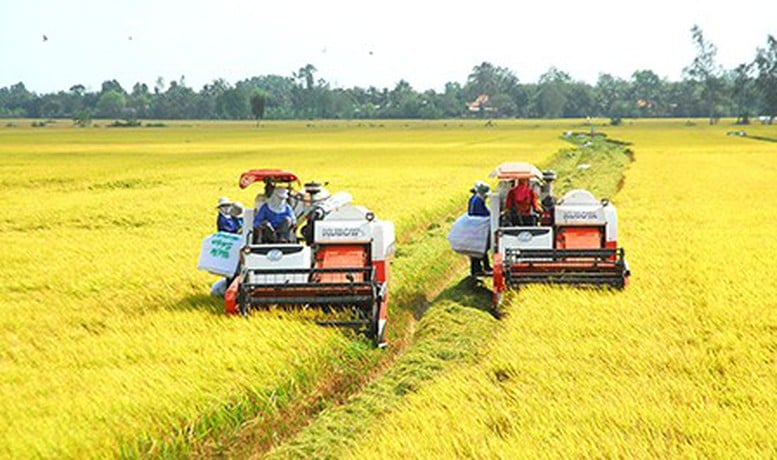
According to the World Bank, rice farming accounts for 48% of total greenhouse gas emissions and more than 75% of methane (CH₄) emissions from the agricultural sector.
The workshop was organized by the International Rice Research Institute (IRRI) in collaboration with the Institute for Strategy and Policy on Agriculture and the Environment (ISPAE) and the German International Cooperation Agency (GIZ), marking the beginning of the project "Enhancing synchronous coordination to implement Vietnam's NDC (greenhouse gas emission reduction commitment) in the rice production system".
The workshop highlighted the role of low-emission rice production in achieving national climate change targets. As the world's leading rice exporter, Vietnam is pioneering the development of green rice production models through the Project on Sustainable Development of 1 million hectares of high-quality and low-emission rice cultivation associated with green growth in the Mekong Delta (MD) by 2030.
Dr. Jongsoo Shin, IRRI Regional Director for Asia, affirmed: "Climate change is seriously affecting global food security. Vietnam has great potential to lead the green transformation in the rice sector. This project will identify effective policy mechanisms that bring dual benefits: reducing emissions, adapting to climate change and improving farmers' livelihoods."
The rice sector plays a vital role in Vietnam's agriculture and global food security. In 2024, rice exports will reach 9 million tons, worth 5.66 billion USD, affirming its important position in the agricultural value chain. However, the sector also faces major environmental challenges. According to the World Bank, rice cultivation accounts for 48% of total greenhouse gas emissions and more than 75% of methane (CH₄) emissions in the agricultural sector. Therefore, sustainable, low-emission rice development is an urgent requirement to fulfill international commitments on climate change.
Vietnam is implementing many solutions to reduce greenhouse gas emissions in rice production. The VnSAT project has applied low-emission farming techniques on 180,000 hectares and the 1 million hectares of high-quality, low-emission rice project is considered the largest-scale strategic step ever.
Dr. Tran Cong Thang, Director of ISPAE, emphasized: "Innovation is an important way to solve current challenges. The rice industry not only ensures food security but also contributes to social stability and sustainable economic development." IRRI also introduced a self-propelled mixer with a capacity of 138 - 300 m³ of straw/hour, much more efficient than traditional machines, supporting the treatment of straw - a large source of emissions if burned or buried improperly.
The project in the Mekong Delta aims to expand 820,000 hectares of low-emission rice by 2030, reduce input costs by 30%, save about VND9,500 billion for farmers, increase profit margins by 50% and reduce greenhouse gases by 10%. In addition, the improved rice cultivation model (SRI) with alternate wetting and drying (AWD) irrigation techniques, integrated pest management and efficient fertilizer use has helped reduce seed use by 70-90%, save water, reduce pests and diseases and increase productivity.
A major challenge raised at the workshop was how to consume 14 million tons of straw from 1 million hectares of rice. According to IRRI, in the Mekong Delta, 24 million tons of straw are produced each year, but only 30% is collected, the rest is burned or buried, causing pollution and increasing emissions. IRRI is supporting the development of a circular economy in rice production, utilizing straw to produce green biomass energy, organic fertilizer, reducing pressure on natural resources and protecting the environment. The government needs to have policies to encourage farmers to participate in this model, bringing clear economic benefits.
Mr. Roland Treitler (GIZ) highly appreciated Vietnam's efforts, affirming that the country is on the right track on the path of green development. The cooperation with international partners such as IRRI and GIZ has brought benefits to the government, businesses and farmers. Vietnam was chosen by IRRI as the initial focus for the implementation of the project on high-quality, low-emission rice cultivation according to the circular economy model in ASEAN until 2029, aiming for the goal of carbon neutrality (Net-zero). The workshop also recognized the role of the press in translating science into practice, as stated by CGIAR organizations.
The workshop results are an important foundation for policy planning to develop sustainable rice production systems. IRRI, ISPAE and GIZ will continue to research farming methods suitable for each ecological region and expand the network of partners for practical application.
Dr. Cao Duc Phat, Chairman of the Board of Directors of the International Rice Research Institute emphasized that the biggest barrier of biotechnology is awareness, it is necessary to strengthen communication to change farmers' thinking. With strategic steps, Vietnam not only ensures food security but also contributes to the goal of reducing methane emissions by 30% by 2030, improving its position in the global rice export market.
Do Huong
Source: https://baochinhphu.vn/phat-trien-ben-vung-va-giam-phat-thai-trong-san-xuat-lua-gao-10225051918373502.htm



![[Photo] President Luong Cuong presents the 40-year Party membership badge to Chief of the Office of the President Le Khanh Hai](https://vphoto.vietnam.vn/thumb/1200x675/vietnam/resource/IMAGE/2025/5/19/a22bc55dd7bf4a2ab7e3958d32282c15)

![[Photo] Close-up of Tang Long Bridge, Thu Duc City after repairing rutting](https://vphoto.vietnam.vn/thumb/1200x675/vietnam/resource/IMAGE/2025/5/19/086736d9d11f43198f5bd8d78df9bd41)
![[Photo] Panorama of the Opening Ceremony of the 43rd Nhan Dan Newspaper National Table Tennis Championship](https://vphoto.vietnam.vn/thumb/1200x675/vietnam/resource/IMAGE/2025/5/19/5e22950340b941309280448198bcf1d9)
![[Photo] General Secretary To Lam attends the conference to review 10 years of implementing Directive No. 05 of the Politburo and evaluate the results of implementing Regulation No. 09 of the Central Public Security Party Committee.](https://vphoto.vietnam.vn/thumb/1200x675/vietnam/resource/IMAGE/2025/5/19/2f44458c655a4403acd7929dbbfa5039)
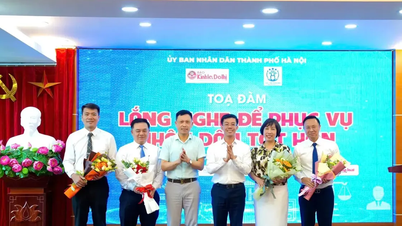

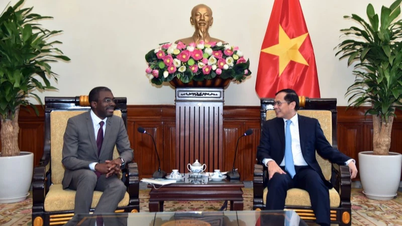



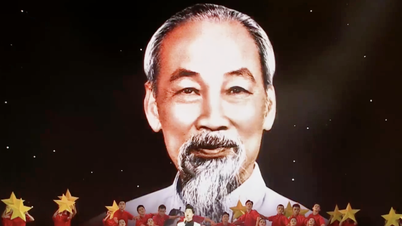

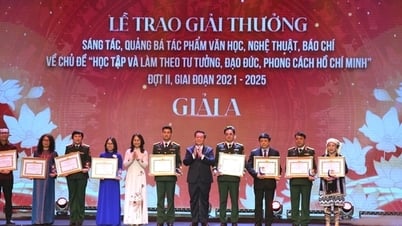






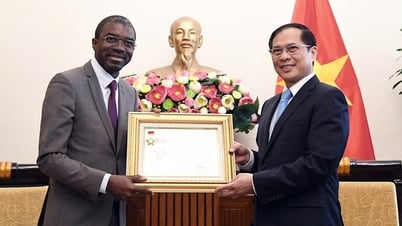
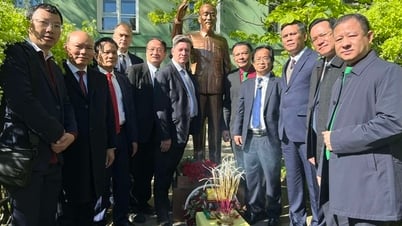
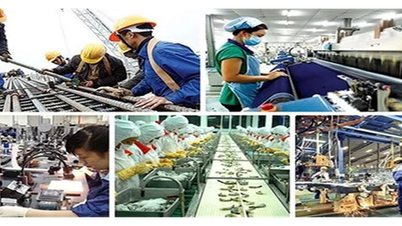
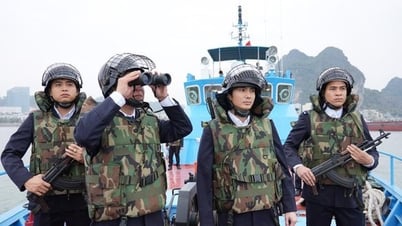
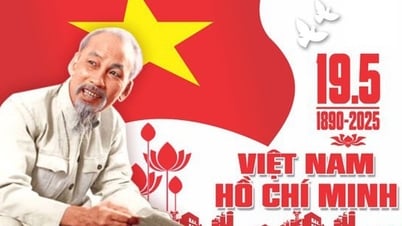
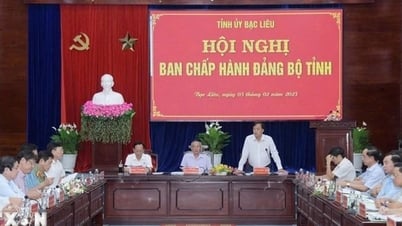
![[Photo] Prime Minister Pham Minh Chinh inspects the progress of the National Exhibition and Fair Center project](https://vphoto.vietnam.vn/thumb/1200x675/vietnam/resource/IMAGE/2025/5/19/35189ac8807140d897ad2b7d2583fbae)















































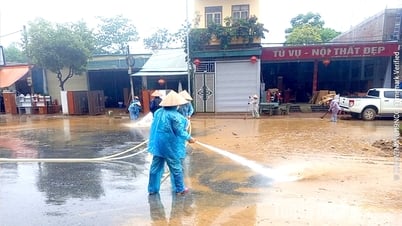

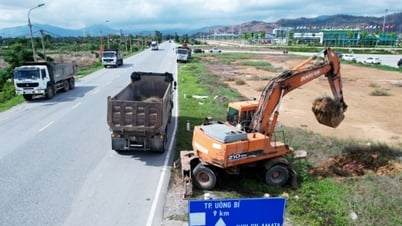

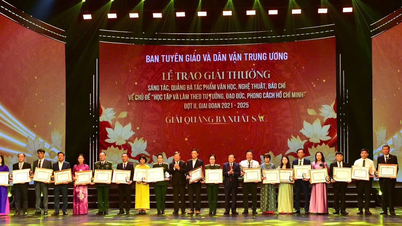







![[VIDEO] - Enhancing the value of Quang Nam OCOP products through trade connections](https://vphoto.vietnam.vn/thumb/402x226/vietnam/resource/IMAGE/2025/5/17/5be5b5fff1f14914986fad159097a677)



Comment (0)